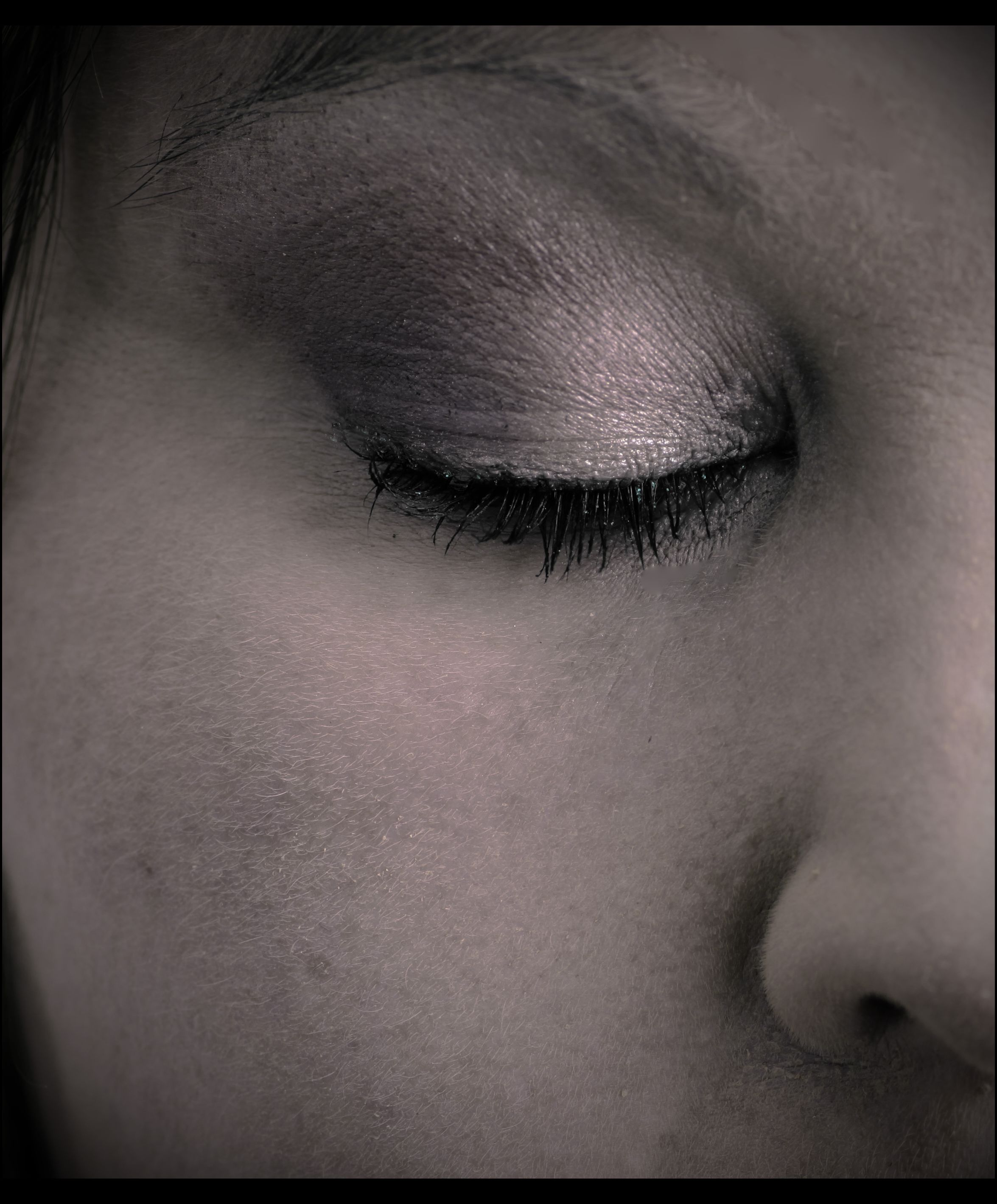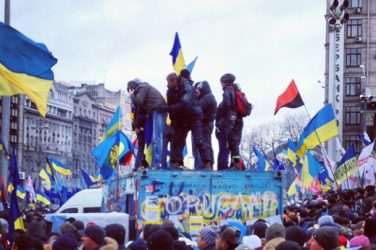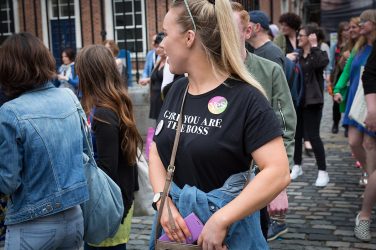Join Croatian journalist Slavenka Drakulić and E&M in a “Debating Europe” discourse: What are European identity, European fears and the power of European citizens? Tell us what you think.
Croatian writer and journalist Slavenka Drakulić envisioned what the European way of life could be in her article “Euroskansen”: the continent will be flooded with tourists, mostly from the east, who look at the Old Continent as we now look at Babylon. Tourist guides will tell tales of this once-great union of countries which brought its own potential and glory to the end because politics were left to politicians who were largely influenced by private interests, national interests were given more importance than common interest and immigrants were not welcome or well-integrated. E&M started a European discussion with Drakulić about European identity, European fears and the power of European citizens – and we welcome your opinions.
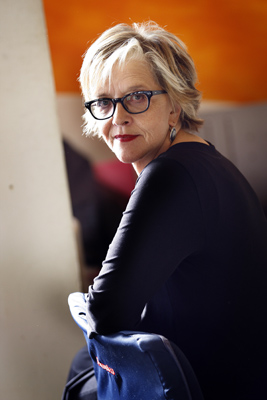
E&M: In one of our blog posts, we talked about how some define Europe in opposition to other communities. Do you see a European community and identity being built up in contrast to some “Other Identities”, creating anti-Muslim or racist tendencies towards immigrants and refugees but also towards other cultures and religious groups outside of Europe?
Slavenka Drakulić: I think that any national, or in this case European, identity is formed against another, as a reaction. Usually one does not need to ask: who am I? I saw it during the wars in the former Yugoslavia. To be a Serb, a Croat, a Bosnian or an Albanian – that was not a problem until somebody asked you to define your identity; your national belonging, by asking you who you are. In other words, when national identity becomes important, there is trouble in sight. The same goes for the anti-immigrant atmosphere growing in Europe and in the EU in the last years. It has to do with fear; fear of the “other.” At the moment Europeans are afraid of Muslims but also of the Roma – tomorrow it might be some other ethnic group, a nation or a religion.
The real question is, why are Europeans afraid of them? What drives fears of the “other” and how the “other” is created? A good example to look at is France with Marine Le Pen. The right wing parties are getting the upper hand in Europe and that is worrisome.
In “the tune of the future” you write that “If Venice is where old Europe is dying, then Bari is where new Europe is emerging. It is one of the entry points for immigrants to Europe.” Can there be a European identity that immigrants and refugees will also be able to relate to?
In my opinion, the question should be asked the other way around: how do we, Europeans, i.e. the majority, relate to immigrants from other continents and their culture? How long are they going to be “Them”? Why do we expect “Them” to accept our culture unconditionally? Obviously there should be a slow process of adaptation from both sides; a kind of give and take. If there were no major frustrations in a society, like the economic crisis, this process would have a chance. But now, a scapegoat is urgently needed. I am not saying that there are no problems with immigrants; of course there are. But both media and politicians are whipping it up for their own needs.
“There is no European identity in the first place.”
You once mentioned that some countries, especially ex-communist countries, instead of truly wanting to become part of Europe, are trying to trick the EU by forging reforms in one of your interviews about hope, integration and disillusionment in Europe. Is this a failure in the process of true European integration, do you think? What can be done about it by normal European citizens?
Now we can see that Greece, a member of the EU and not a former communist country, was forging reforms and falsifying documents all along. So much for the failure of the process of true European integration! After this happened in Greece, there is no point in talking about forging reforms, I think. In former communist countries, after 1989, there was a strong desire to demonstrate that they belong to Europe; that they too are Europeans. That desire to be accepted by the West (in our communist dictionary, Europe was equal to West) sometimes resulted in formal reforms, while a society was functioning as before. However, when speaking about “true European integration” or “normal European citizens,” we perhaps should start with definitions of what we mean by that. If not, we do not know what we are talking about.
You describe the effects which incoming foreign investment has on Venice, turning this iconic European city into a “Disneyland amusement park.” Is the whole debate about a common European identity and feeling misguided; are we aiming to construct a stable and prosperous Europe that is “photogenic”? Do we need to focus more on building Europe and its practical conditions that shape our everyday life?
There is no European identity in the first place. There is European common history, European values, European culture etc, but all that is not enough to form a strong sense of belonging. European identity exists in a superficial way, for example when you visit the USA you feel different about, say, medical care. In that sense, you are a European. Moreover, there is no debate about European identity and what it should be – and why. How could we have a common debate of that kind when we do not have one of the very basic prerequisites for a common identity, a common language? Neither that, nor common media where the debate would take place…
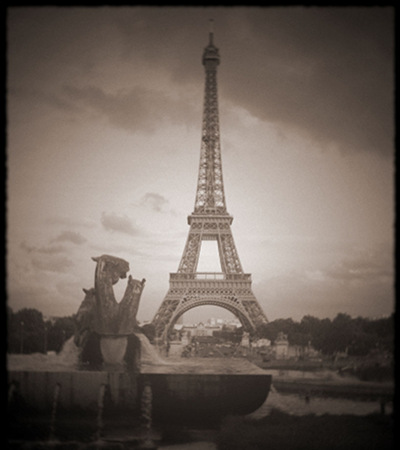
Also, perhaps we should accept that it is not only us (and who is Us, by the way? Citizens of Europe? Or only of the EU?) who are shaping Europe.
In a debate regarding former Yugoslavia, you wrote: “If reconciliation between France and Germany, for example, had been left to citizens, a united Europe would still be a hundred years off.” Does it also apply to European integration and the construction of a common identity: do we need to rely on politicians to initiate discussions and actions? If not only politicians, who should take an active role and will we/they ever succeed?
Political leadership is needed, but we have a new sort of politicians who are not really concerned with public interest, but only their own careers. They depend on opinion polls and their aim is to be popular and therefore they reach for populist rhetoric, trying to please the crowd. There are no big visionary leaders among them, at least at the moment. Plus there are not enough “thinking people” whose voices could be heard. They used to be called intellectuals, but this is dying species! So, it is hard to see who is representing public interest today.
How do you envision Europe to be in 30 years?
In my story “Euroskansen” I am describing Europe in the future as an amusement park. Tourists from the whole world will be visiting it to see and admire how Europeans lived before in a welfare state, with free schools, free medical care, pensions, paid maternal leave and long summer vacations. By then, that kind of life we are used to will be long gone.
Teaser Image: Piccadilly Pink (CC BY-NC-SA)


